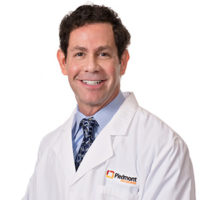Any day now the Health Resources and Services Administration, the federal agency that oversees the system by which deceased people’s donor organs are allotted for transplant throughout the country, is expected to issue new rules that will, quite literally, be making life-and-death decisions.
But that is not the only direction from which the current system is under assault. This past summer, six patients from New York, California and Massachusetts sued the U.S. Department of Health and Human Services, the Organ Procurement and Transplantation Network (OPTN), and the United Network for Organ Sharing (UNOS), the nonprofit currently awarded the contract to implement organ sharing. The plaintiffs’ complaint is that the current system causes patients where the six reside to have to wait longer for a liver transplant (and possibly die) disproportionately compared to patients elsewhere in the United States.

The suit demands an end to the current system in favor of “an appropriate zone-based” policy, which it would expand to one that is 1,000 miles from donation for patients of all Model for End-Stage Liver Disease, or MELD, scores. (MELD scores are used to prioritize patients waiting for a liver transplant). Such a change in policy would mean that an organ donation from South Georgia could routinely go to a patient in New York. The current system keeps organs donations more regionally based.
While the plight of these plaintiffs is heartbreaking, the lawsuit is seriously misguided.
The equitable distribution of donated livers has been contentious ever since transplantation of organs became possible. The reason is simple: The number of Americans needing livers exceeds the number of donated organs, with an estimated 10 percent to 20 percent of patients dying while officially on the waiting list. The national allocation system that evolved, which was developed with the best of intentions, prioritizes livers for those who would have the shortest life expectancy without a transplant.
Over the years, transplant centers manipulated the national rules governing how organs are allocated to catapult their patients ahead of those from other hospitals. With time, additional modifications were added to prioritize livers for patients with the shortest life expectancy without a transplant. In December 2017, further changes mandated the sharing of organs for patients not quite so desperately ill across the regional boundaries within a 150-mile radius.
Is this system perfect? No. Is any system perfect? No. Patient advocates, patients and the medical community continually strive to optimize the system for the majority of patients.

Part of the unfortunate reality of our current health care system is that many Americans do not have access to sub-specialty care at a transplant center. Instead, they die of liver disease in their communities without ever seeing a liver specialist or without ever getting on a transplant list. Georgia has two adult transplant centers for more than 10 million people. There are three adult liver transplant programs within 200 miles of Atlanta. In contrast, there are 15 within 100 miles of New York City. Southern patients have a higher likelihood of dying on the transplant list awaiting an organ while New Yorkers have the lowest risk of dying from their liver disease.
The explanation is that more Southern patients come from rural, underserved, socioeconomically disadvantaged communities. They may be unable to afford traveling the long distance to see liver sub-specialists to stay alive while awaiting transplant. Making radical changes only to how livers are allocated to those who are already on the transplant list totally ignores patients in underserved areas where they never have a chance to get on the official list.
The timing of this lawsuit is remarkable. In June, the Centers for Medicare and Medicaid Services declined to renew the New York’s local organ procurement organization’s contract because of poor performance. New York City has the worst rate of organ donation in the entire country. The solution for having fewer organs donated near where they are needed, however, should not penalize patients elsewhere.
Rather than objectively arbitrating these issues, the parties that are trying to change the current system stack committees with themselves and their allies, blatantly repudiating the need to represent all the country’s regions. Coincidentally, the changes they have been trying to ram through mirror the demands in the lawsuit. They have funneled millions of dollars to lobbyists. They threaten opponents’ career success. They publicly accuse poorer regions, such as ours, of capitalizing so much on “transplant tourism” as the reason we do not embrace their demands. The reality is that 99 percent of our patients come from the Southeast.

Why blow up rather than improve the allocation system? Those who filed this lawsuit would argue that their lives are at stake. My heart goes out to them. One patient who gets a transplanted liver means the next in line may die while waiting. Who gets to the front of the line has always bedeviled advocates, ethicists, physicians and lawmakers. This will continue until artificial livers make transplants obsolete.
What can we do now to minimize inequities in transplant access? Get New Yorkers the Organ Procurement Organization they deserve. Increase organ donation nationally. Institute the changes mandated in December 2017. Quickly analyze whether these changes have the intended consequences before totally annihilating the current sharing system.
This lawsuit completely ignores the front-end inequities (such as higher percentages of uninsured and underserved populations) in regional access to liver care. This must be addressed. What is crystal clear is that this lawsuit and other proposed changes to the current system favor more densely populated regions and will transfer organs donated in underserved, disadvantaged regions to privileged areas already enjoying better access to sub-specialty care. And that, by no definition, is fair or equitable.
Raymond Rubin, M.D., serves as chief scientific officer and as a general and transplant hepatologist at Piedmont Transplant Institute. Previously, he co-founded and served as the medical director of Piedmont’s new liver transplant program.

